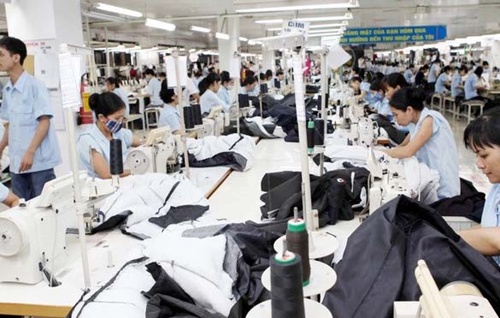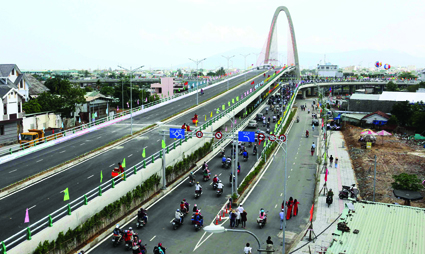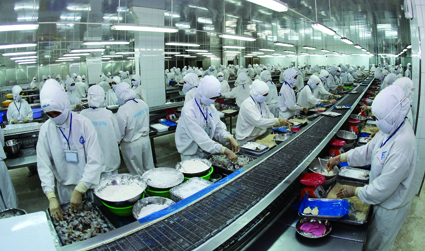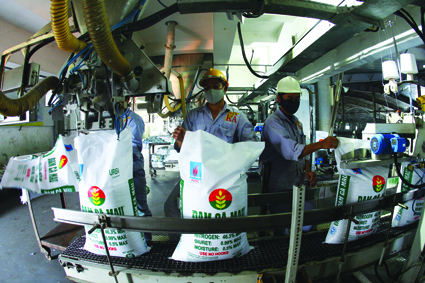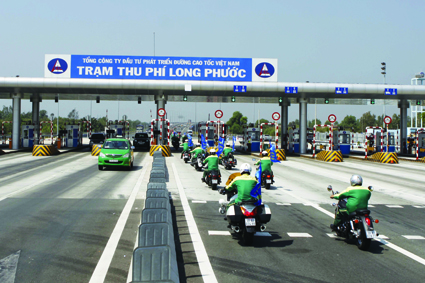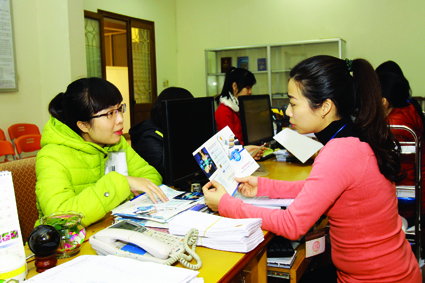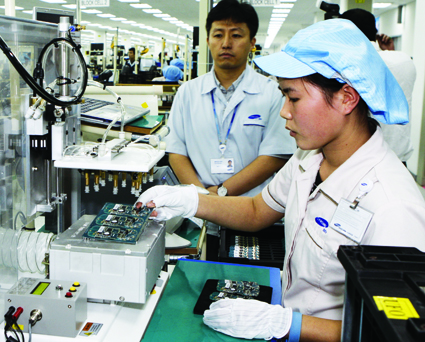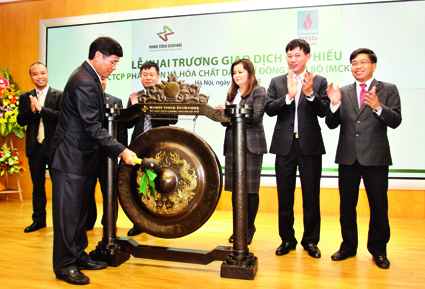* Guidance to remove difficulties in VAT refund for foreigners
The Ministry of Finance has issued an official letter guiding in detail the value-added tax (VAT) refund for foreigners in case they have received VAT refund but not yet left the country for some reasons.
Customs offices will guide them to show goods that they have bought and invoices for VAT refund issued by banks (if any).
If foreigners bring along VAT-refunded goods, they may choose to temporarily leave their goods at customs offices that will make written documents to certify the leaving of goods and temporarily keep such goods. They must notify the customs offices of their departure within 24 hours before their actual exit and produce the written certification of their temporarily kept goods made by customs offices.
They may also choose the second solution that the customs offices will erase the tick from the box “VAT refund agreed” on the VAT refund declaration, stating the reason after they have returned the VAT refunds to commercial banks.
If foreigners do not bring along the goods that may be consigned along with flights or carried by their relatives or friends on their flights, they have to contact the customs offices where they have performed the VAT refund procedures to declare their non-departure. The customs offices will check the goods for which VAT is refunded but will not re-collect VAT refunds as the goods are regarded as having been actually exported.-
* Losses from loopholes in excise tax policies
Loopholes in the current excise tax policies have caused considerable undercollection of the state budget revenues over the past years, complained the State Audit Office of Vietnam (SAV) at its recent conference.
Under the Finance Ministry’s Circular No. 05/2012/TT-BTC dated January 5, 2012, the excise tax calculation price is the selling price of commercial establishments regardless of whether they are independent or dependent establishments.
The SAV has proposed the ministry to revise the excise tax calculation method.
The new regulation must clearly define the excise tax calculation price in the case commercial companies are subsidiaries of or independent from production companies.
Earlier, in a recent talk with the Vietnam Economic Times reporters, head of the ministry’s Tax Policy Department Pham Dinh Thi said that current regulations failed to prescribe the excise tax calculation price applicable to taxpayers that are domestic producers selling goods through their own subsidiaries.
As a result, numerous taxpayers, including locally-invested and foreign-invested producers, have sought to set up subsidiaries or joint-stock companies to distribute their products and transfer prices from the production stage to the trading stage (transfer pricing) in order to cut down the excise tax calculation price thereby reducing payable excise tax amounts, he said.
He added that many parent company-subsidiary models with the holding rate by parent companies of over 90 percent in their subsidiaries have recently been employed by a number of enterprises such as the Saigon Beer, Alcohol and Beverage Joint-Stock Corporation (Sabeco) and the Hanoi Beer, Alcohol and Beverage Joint-Stock Corporation (Habeco).-
* Legal grounds for rendering support to small, medium-sized enterprises to be codified
Chairman of the National Assembly’s Committee for Economic Affairs Nguyen Van Giau and Minister of Planning and Investment Bui Quang Vinh have emphasized the necessity to have a law on small- and medium-sized enterprises (SMEs).
The National Assembly has recently decided to include the law on SMEs in its XIIIth legislature’s law-making program.
Minister Vinh said his ministry is compiling the draft law which was expected to be passed in 2016.
According to Pham Ngoc Long, director of the Science Institute for SMEs Management (SISME), the legal framework on SMEs remains incomplete and consists of scattered relevant legal documents. It has only created a favorable business and investment environment in a general manner but not yet focused on sharing practical interests and seeking to protect business activities of SMEs in a long term.
Long said the best way to encourage SMEs to develop is to properly implement the Laws on Bidding and Asset Auction and to bring into play their roles in the provision of public services and goods and investment in agriculture and infrastructure with attractive profit ratios and the lowest risk.
He proposed to improve the legal framework by revising as soon as possible Government Decree No. 56/2009/ND-CP and include in a single law all existing mechanisms and policies on assistance for development of SMEs, with a view to connecting relevant laws and creating a general basis for issuing specific policies.-
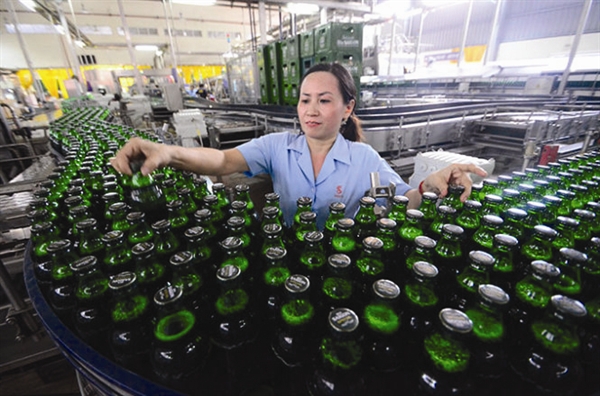 |
| Saigon Beer production line __Photo: Internet |
* Exporters advised to make the best use of the rules of origin
An official from the Ministry of Industry and Trade (MOIT) has recently emphasized the importance of the rules of origin (ROO) for Vietnamese goods to enjoy ideal tariff rates under the free trade agreements (FTAs) to which the nation is a contracting party.
Bui Kim Thuy, deputy head of the goods origin section of the MOIT’s Import and Export Department, told a forum of the plastics sector’s CEOs in Ho Chi Minh City on July 10.
At present, Vietnam is a contracting party to fifteen free trade agreements (FTAs), including ten concluded FTAs and five others under negotiations. Eight out of the 10 concluded FTAs have come into force.
In order to enjoy the ideal tariff rate under an FTA, export products have to satisfy ROO prescribed exclusively for such FTA. Only when meeting the ROO, can exporters be granted a preferential certificate of origin that is the most important legal ground for the importing country’s customs offices to determine the origin of imported goods and give the preferential tariff treatment.
Thuy reinterated ROO were always the most important factor in an FTA as they serve as a tool for determining whether or not imported goods are eligible for tariff preferences, helping keep the rational balance between “trade facilitation” and “trade fraudulence prevention”, and evaluating the utilization of FTA benefits by the contracting parties.
Following the Trans-Pacific Partnership Agreement (TPP), Vietnam is negotiating another important trade agreement, namely the Regional Comprehensive Economic Partnership (RCEP) with a membership of 16 countries, she added.-
* Legal framework on PPP investment to be completed soon
Deputy Prime Minister and head of the Steering Committee for Public-Private Partnership (PPP) Hoang Trung Hai has recently asked relevant ministries and sectors to finalize and issue a number of circulars guiding Government Decrees No. 15/2015/ND-CP dated February 14, guiding PPP investment, and No. 30/2015/ND-CP dated March 17, guiding investor selection under the Bidding Law, in order to promote PPP projects.
The request was made at his conclusion at the seventh session of the Steering Committee on building the legal framework on investment in the PPP form.
Accordingly, within this month, the Ministries of Planning and Investment and Finance are expected to issue a joint circular guiding the management and use of ADB and AFD loans in support of PPP investment projects.
In September and October, the Ministry of Planning and Investment is tasked to elaborate and issue circulars guiding the implementation of a number of articles of Decree No. 15; project selection and proposal and making of feasibility study reports of PPP investment projects; guidance on the preparation of dossiers of invitation for prequalification, bidding dossiers and dossiers of requirements for selecting investors to implement PPP projects and land-using investment projects.
The Ministry of Finance will work with the Ministry of Planning and Investment in elaborating a circular guiding the order and procedures for disbursement and the mechanism for management of viability gap funding (VGF) in PPP projects to be issued in October.
Other related ministries are requested to work with the Ministry of Planning and Investment and Ministry of Finance in proactively issuing joint circulars guiding the implementation of works and projects under their management based on the Decrees on PPP in November.
Ministries, sectors and localities can work with the Ministry of Planning and Investment in proposing a list of vanguard PPP projects with detailed plans on capital sources and support mechanisms, for reporting to the Prime Minister in September.-


